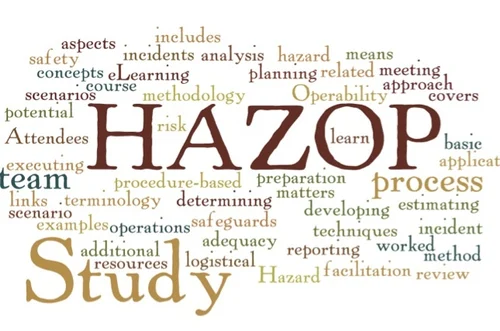Hotel HR: Building a Strong Hospitality Team

The success of any hotel largely depends on the efficiency and dedication of its hospitality team. A well-trained and motivated team ensures that guests have a memorable experience, leading to positive reviews and repeat visits. Hotel Human Resources (HR) plays a crucial role in recruiting, training, and retaining the best talent for a hotel’s smooth operation. By implementing effective HR practices, hotels can maintain high service standards and enhance customer satisfaction.
Understanding the Role of Hotel HR
Hotel HR is responsible for handling a variety of tasks that contribute to the smooth functioning of the hotel. These tasks include recruitment, training, performance evaluation, and ensuring compliance with labor laws. HR professionals in the hospitality industry focus on hiring individuals with the right attitude and skills to excel in various roles. They also ensure that employees are well-trained to handle the unique challenges that arise in a hotel environment.
Recruitment and Selection Process
Finding the right candidates is the first step in building a strong hospitality team. Hotel HR professionals use different strategies to attract skilled candidates. They often collaborate with the Best Hotel Management College in Kota to identify talented individuals who are passionate about the hospitality industry. By selecting candidates with the right skill set and a positive attitude, hotels can create a team that consistently meets guest expectations.
The recruitment process typically involves:
-
Job Posting: Advertising openings through job portals, social media, and hospitality networks.
-
Screening and Interviews: Conducting thorough interviews to assess candidates’ skills and suitability.
-
Reference Checks: Verifying candidates’ past experiences to ensure credibility.
Training and Development Programs
Once hired, employees must undergo proper training to understand the hotel’s standards and procedures. Hotel HR designs customized training programs that focus on customer service, conflict resolution, and operational efficiency. Training ensures that employees are equipped to handle guest inquiries, resolve complaints, and deliver high-quality service.
A well-structured training program includes:
-
Orientation: Introducing new employees to the hotel’s policies, culture, and expectations.
-
On-the-Job Training: Allowing employees to gain hands-on experience under supervision.
-
Skill Enhancement: Providing regular workshops to update employees’ knowledge and skills.
Employee Retention Strategies
Retaining skilled employees is essential for maintaining service quality and reducing turnover costs. Hotel HR implements various strategies to keep employees satisfied and motivated. Offering competitive salaries, recognizing achievements, and providing opportunities for growth are key factors in employee retention.
HR professionals also focus on creating a positive work environment where employees feel valued and appreciated. Regular feedback, employee engagement activities, and open communication channels contribute to higher job satisfaction.
Performance Management and Evaluation
To maintain high standards, it is important to regularly evaluate employee performance. Hotel HR uses performance management systems to set goals, monitor progress, and provide constructive feedback. This process helps employees understand their strengths and areas for improvement.
Performance evaluation typically involves:
-
Setting Clear Objectives: Defining goals that align with the hotel’s mission.
-
Continuous Monitoring: Observing employees’ work and providing regular feedback.
-
Reward and Recognition: Recognizing exceptional performance through rewards and promotions.
Importance of Teamwork in Hospitality
In the hospitality industry, teamwork plays a vital role in ensuring seamless operations. A well-coordinated team enhances guest satisfaction by delivering consistent and efficient service. Hotel HR promotes a culture of teamwork by encouraging collaboration and open communication among employees.
Team-building activities, cross-training programs, and regular staff meetings help foster strong relationships and improve teamwork. By emphasizing the importance of working together, hotels can create a harmonious and productive work environment.
Ensuring Compliance with Labor Laws
Compliance with labor laws is another critical responsibility of hotel HR. Ensuring that the hotel adheres to legal regulations helps prevent disputes and protects both employees and the organization. HR professionals stay updated on labor laws and implement policies that promote a safe and fair work environment.
Compliance measures include:
-
Maintaining Accurate Records: Keeping detailed records of employees’ working hours and wages.
-
Ensuring Workplace Safety: Implementing safety protocols to protect employees and guests.
-
Addressing Grievances: Providing channels for employees to voice concerns and resolve issues.
Leveraging Technology in Hotel HR
Technology has revolutionized hotel HR processes, making them more efficient and accurate. Many hotels use advanced HR software to manage employee records, track performance, and streamline payroll processes. These tools help reduce administrative burdens and improve overall HR efficiency.
By integrating technology into HR operations, hotels can enhance their ability to manage large teams and ensure smooth operations. This approach also enables HR professionals to focus more on strategic planning and employee development.
Collaboration with Hotel Management Institutes
To maintain a pool of talented professionals, hotels often collaborate with the top hotel management center in Kota. Such partnerships ensure that aspiring hospitality professionals receive practical training and industry exposure. AHA Kota is known for producing well-trained graduates who are ready to excel in the hospitality sector. By hiring graduates from reputed institutions, hotels can strengthen their workforce and uphold high service standards.
Conclusion
Building a strong hospitality team is essential for the success of any hotel. Hotel HR plays a key role in recruiting the right talent, providing adequate training, and ensuring employee satisfaction. Through effective performance management and a focus on teamwork, hotels can maintain high service standards and enhance guest experiences. Collaborations with institutions like the Best Hotel Management College in Kota and the top hotel management center in Kota further contribute to building a capable and efficient workforce. By adopting the right HR practices, hotels can create a thriving work environment that benefits both employees and guests.







